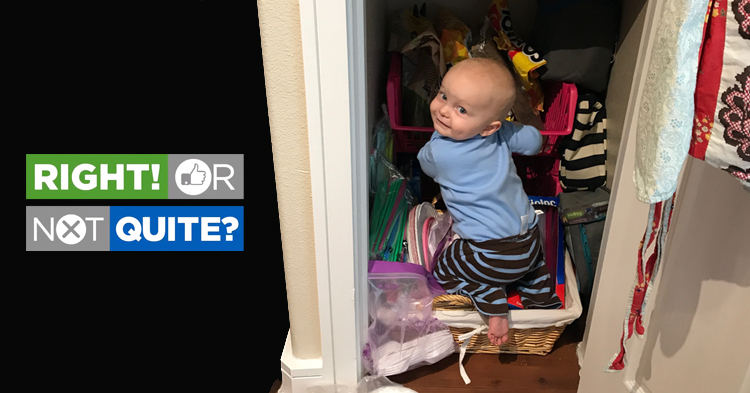
How do you keep your cool when your child is pressing your buttons? Early childhood mental health specialist Rachel Wagner knows it’s not easy.
The author of FLIP IT! Transforming Challenging Behavior, Wagner has developed four simple, positive and effective steps for parents and early educators to use in the heat of the moment of tantrums and other behaviors that adults find challenging. We asked her to tell us more about it.
FTF: What is FLIP IT?
Rachel Wagner: It’s a mnemonic that stands for four steps: Feelings. Limits. Inquiries. Prompts.
The way it works is that when you are in a challenging situation with a child, you walk through each of these steps.
The first step is FEELINGS. You acknowledge the child’s emotions with a verbal statement. “Wow, I’m looking at your face, I can see that you are mad.” When we give children a name for their feelings, it helps them to be present and be open to learning coping skills for those difficult feelings. We want to help kids become emotionally literate. It’s reassuring to have a name for feelings, in both negative and positive situations. Adults are the same way. When adults have a nagging feeling, but they don’t know what it is or why they feel it, it can produce grumpiness or irritability. When we are able to name a feeling, then we can find a way to cope with it.
The second step is to offer a LIMIT or boundary for the behavior or situation. “I can see you are feeling frustrated and pushing your sister. Our rule is that we use gentle touches.”
Third step is INQUIRIES. This is when you ask an open-ended question. “How can we help you get your feelings out in a safe way? What can we do to solve this problem?” As parents and caregivers, we have a tendency to want to fix everything for kids, but unfortunately it keeps a child from learning that they can solve a lot of their own challenges. We want to engage kids in a way that builds their confidence and helps them to become problem-solvers. Eventually, we want to raise children who are able to figure out complex and emotional situations.
The last step is PROMPTS. If a child can’t find a solution on their own, then we help them with suggestions and ideas of how to solve the problem or cope with the feeling.
In my work, I see a lot of people setting limits and offering prompts, but I don’t see a lot of identify feelings or inquiries. FLIP IT is a reminder to do all the steps.
When is FLIP IT most effective, and who should be using it?
It’s applicable in a variety of situations. It’s a strategy for kids who have a lot of deep and complicated emotions in their lives. It’s a trauma-sensitive strategy. But it can also be used for everyday challenges, like disputes over who took someone’s pencil. It’s a good idea to use it in combination with other high-quality strategies.
What’s your advice to parents and caregivers given all the extra stresses families are currently dealing with?
If you had a lot of stress in your life before COVID-19, the pandemic has magnified those stressors. If you had financial struggles, now they are bigger. If you had challenging domestic relationships, now those challenges are more intense.
In addition to a lot of wonderful strategies that are available to support the well-being of adults who are caring for children, it can also be helpful to remember that what works for children often works for grown-ups, too. You can use FLIP IT with yourself and in your adult relationships. Everyone could benefit from exploring their feelings, limits, inquiries and prompts. FLIP IT is a great way to resolve conflict and help you stay focused on maintaining secure and solid relationships.
Relationships are foundational. Every strategy we use is only as good as the relationship it is built upon. When a strategy isn’t working, sometimes we have to go back and invest in the relationship. Try to create a daily structure so that you can connect and check in with your kids and others you love, even if its five minutes a day. Those connections will go a long way.




